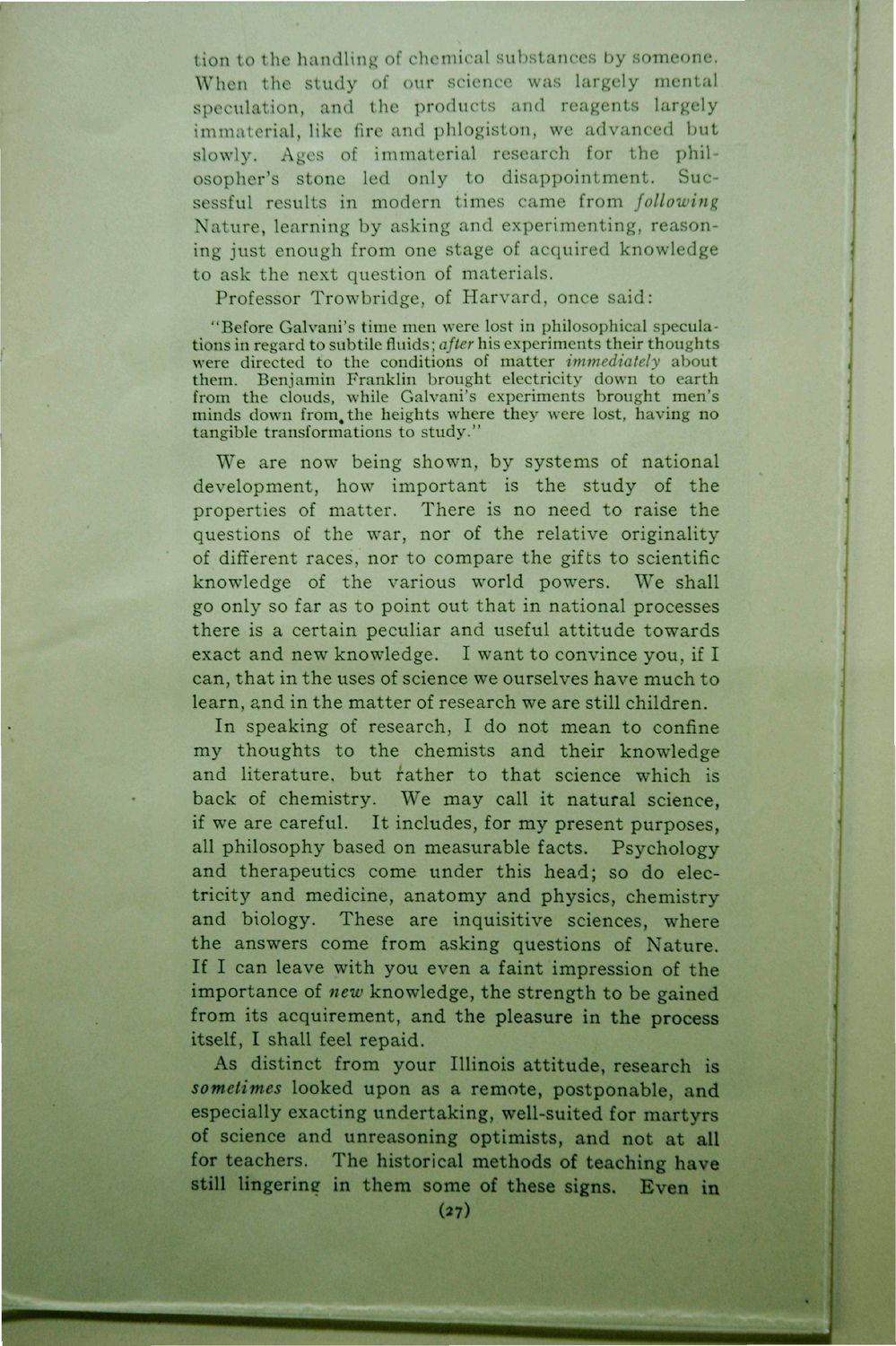| |
| |
Caption: Dedication - New Chemistry Building
This is a reduced-resolution page image for fast online browsing.

EXTRACTED TEXT FROM PAGE:
tion to the handling of chemical substances by someone. When the study of our science was largely mental speculation, and the products and reagents largely immaterial, like fire and phlogiston, we advanced but slowly. Ages of immaterial research for the philosopher's stone led only to disappointment. Sucsessful results in modern times came from following Nature, learning by asking and experimenting, reasoning just enough from one stage of acquired knowledge to ask the next question of materials. Professor Trowbridge, of Harvard, once said: "Before Galvani's time men were lost in philosophical speculations in regard to subtilefluids;after his experiments their thoughts were directed to the conditions of matter immediately about them. Benjamin Franklin brought electricity down to earth from the clouds, while Galvani's experiments brought men's minds down from^the heights where they were lost, having no tangible transformations to study." We are now being shown, by systems of national development, how important is the study of the properties of matter. There is no need t o raise the questions of the war, nor of the relative originality of different races, nor to compare the gifts to scientific knowledge of the various world powers. We shall go only so far as to point out t h a t in national processes there is a certain peculiar and useful attitude towards exact and new knowledge. I want to convince you, if I can, t h a t in the uses of science we ourselves have much t o learn, and in the matter of research we are still children. In speaking of research, I do not mean t o confine my thoughts t o the chemists and their knowledge and literature, but rather to t h a t science which is back of chemistry. We may call it natural science, if we are careful. I t includes, for my present purposes, all philosophy based on measurable facts. Psychology and therapeutics come under this head; so do electricity and medicine, anatomy and physics, chemistry and biology. These are inquisitive sciences, where the answers come from asking questions of Nature. If I can leave with you even a faint impression of the importance of new knowledge, the strength to be gained from its acquirement, and the pleasure in t h e process itself, I shall feel repaid. As distinct from your Illinois attitude, research is sometimes looked upon as a remote, postponable, and especially exacting undertaking, well-suited for martyrs of science and unreasoning optimists, and not at all for teachers. The historical methods of teaching have still lingering in t h e m some of these signs. Even in (27) B9BHB!
| |